| Your browser is not supported. | ||
|
Please browse our site using any of the following options:
| ||
Homeward Bound: An Antarctic Learning
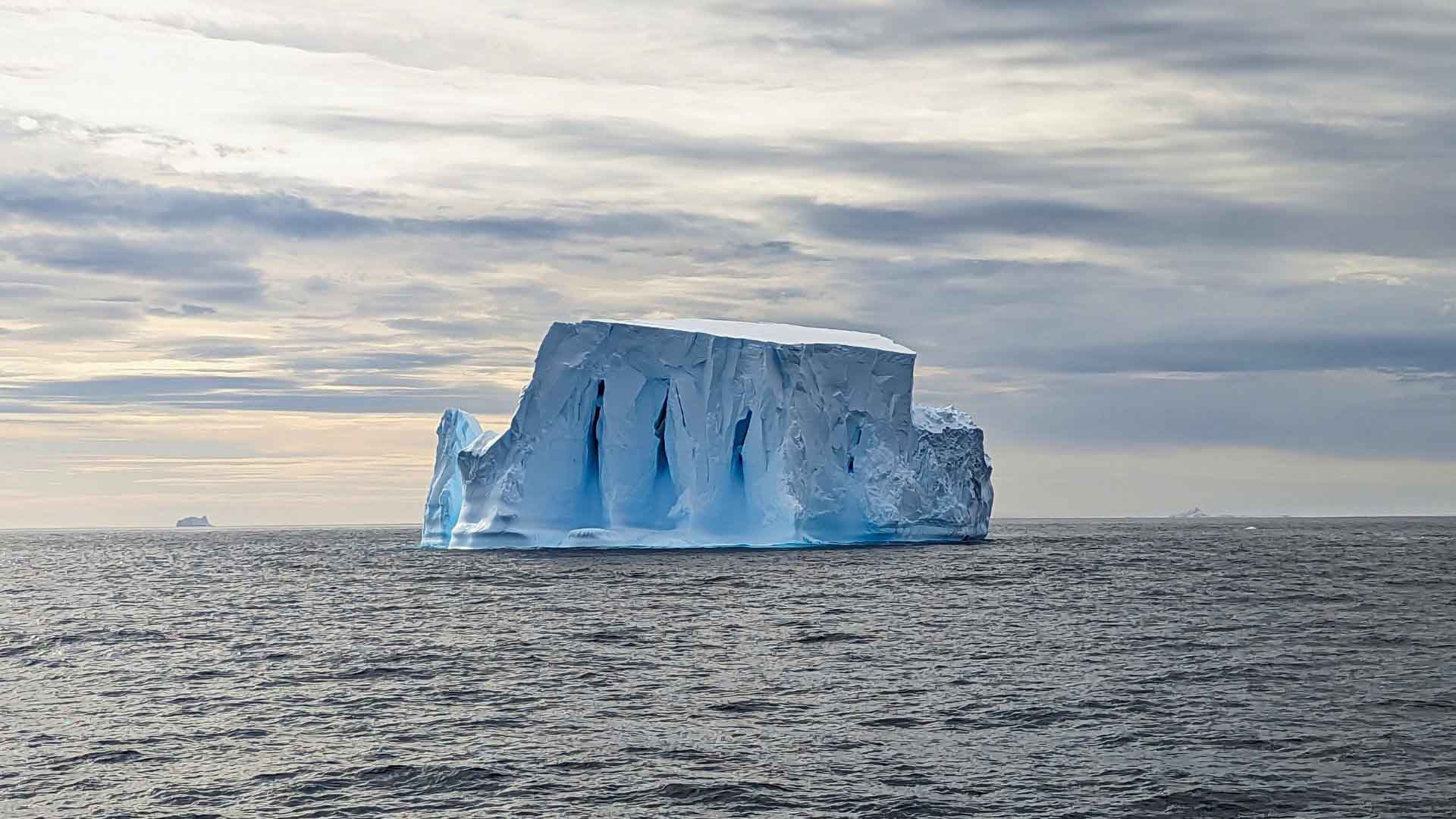
With a background in marine science and food sustainability, Ari Comben recently had the unique opportunity to put her skills to work in the name of helping create a more sustainable future. The project involved 21 days in Antarctica, discussing and researching climate change, cryosphere science and global sustainability initiatives amongst other things with 189 other scientists and thought leaders. We sat down with Ari to understand the breadth of this incredible work and its impact on the world around us.
Who Is Ari Comben
I'm a spatial expert who works for the state government in New South Wales, Australia with a background in marine science and food sustainability. I started my journey in my home country, Mexico, studying biotechnology in aquaculture while volunteering for aquaculture research. Later, I worked for the National Commission of Aquaculture and Fisheries, focusing on managing national water bodies and improving the aquaculture industry.
Recognising the significance of spatial sciences for natural resource management, I pursued a master's degree in marine science and management in Sydney, Australia specialising in geographic information systems. Along the way, I was fortunate enough to receive four international scholarships and three prestigious awards. Outside of work, I enjoy scuba diving, travelling, and spending time with my husband and two-year-old.
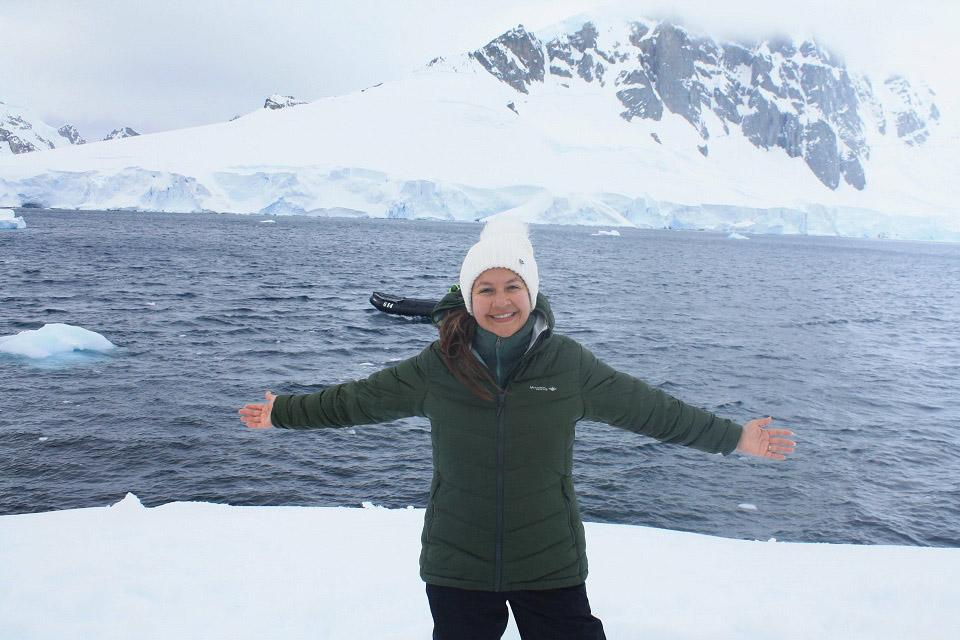
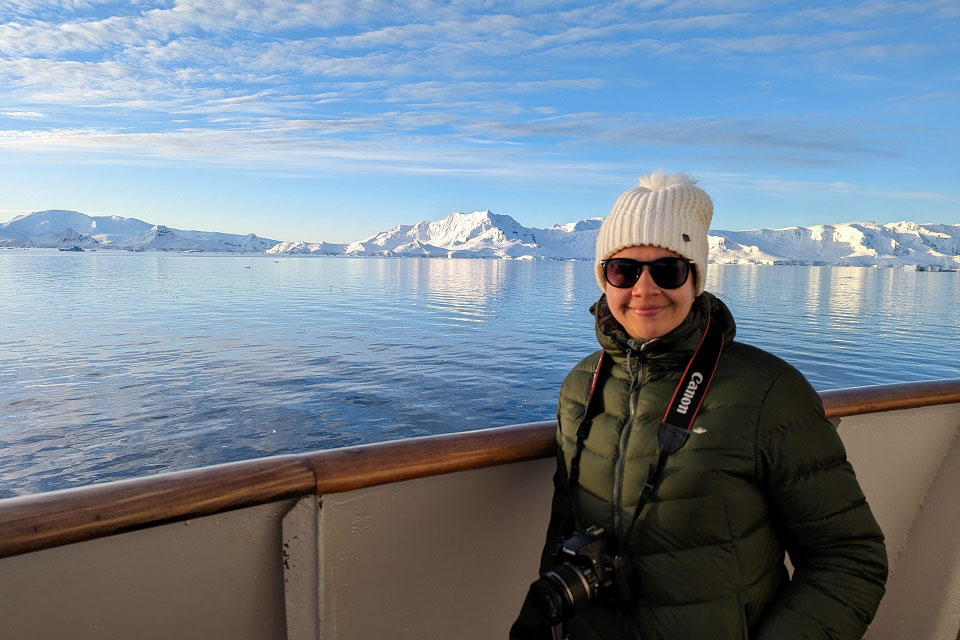
Meet Ari Comben. (Image courtesy of Ari Comben)
What Was The Expedition You Recently Embarked Upon?
In November 2023, 189 women and non-binary people, including myself, embarked on two different ships for an Antarctic expedition as part of the Homeward Bound Leadership Program. The original plan aimed to cover the Falkland Islands, South Georgia and the Antarctic Peninsula over 21 days. However, due to unpredictable weather and the escalating spread of avian flu, none of the initial intended landings occurred. The region's ever-changing weather conditions, including floating or newly broken icebergs, forced us to adjust our route or expedite plans to navigate specific areas. Moreover, the avian flu spreading to sub-Antarctic islands led to South Georgia's closure to visitors. This unexpected development, combined with the fact that a storm was forming over the Drake passage meant for us to arrive to the Antarctic peninsula earlier than expected, requiring the rearrangement of landing sites that are typically booked months in advance.
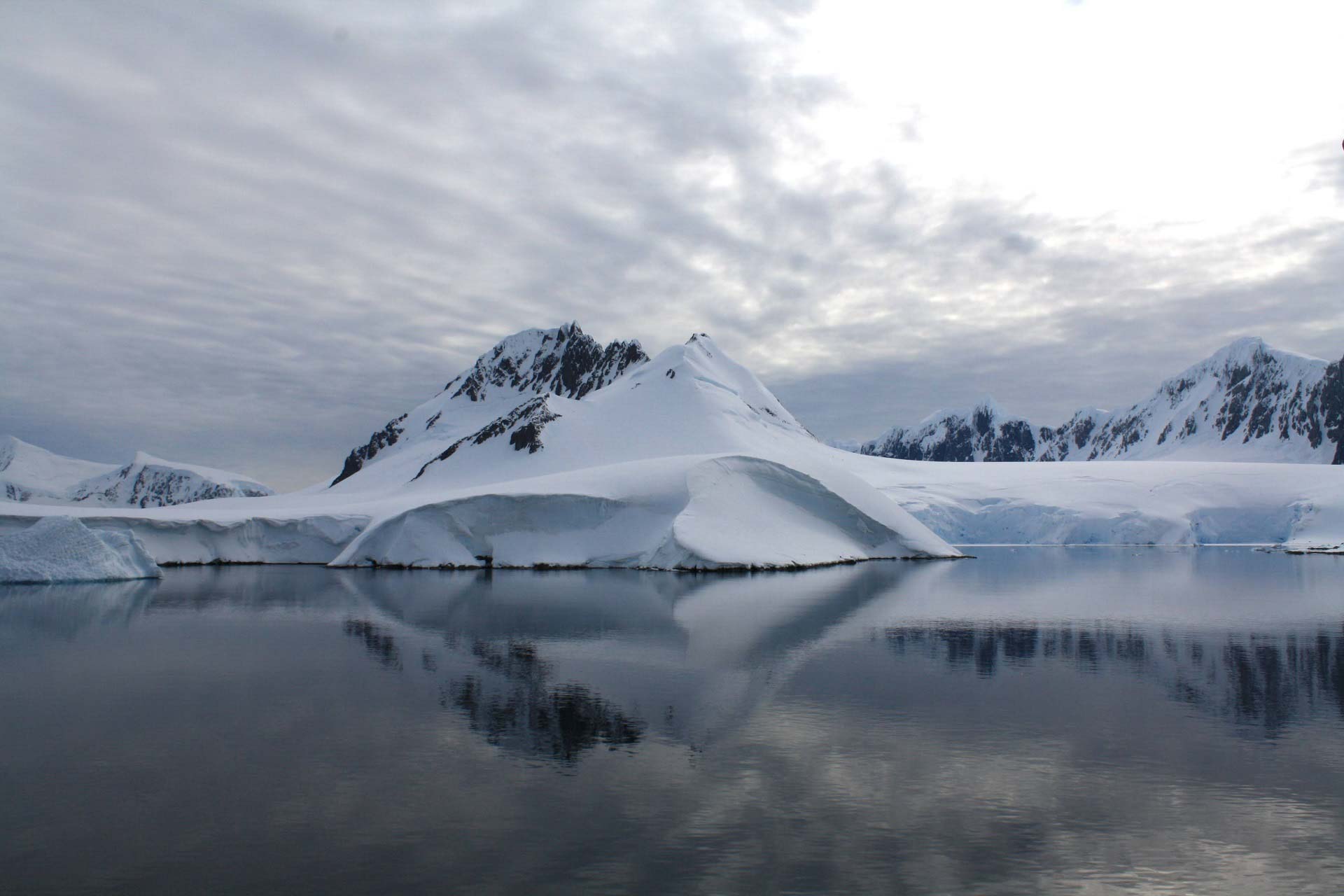
The pristine majesty of the Antarctic region. (Image courtesy of Ari Comben)
Why Were You Involved? What Was The Expedition Objective?
This expedition was part of the Homeward Bound program, which aims to bring together 10,000 women and non-binary individuals from all over the world with backgrounds in STEMM to lead, influence and contribute to decision-making for a more sustainable future over the next decade. I was fortunate to be selected as part of Cohort 8 and joined others from previous cohorts on a 21-day expedition to Antarctica. This voyage is designed to develop leaders by working together with intentional action, creating a collective impact. While on the ship, we delved into various topics such as sustainable and adaptive leadership from both personal and collective perspectives. Additionally, we learned about cryosphere science and the current state of Antarctica's research, exploring each other's STEMM projects and specialties. Throughout this expedition, we witnessed firsthand the profound impacts of climate change in this critical environment.
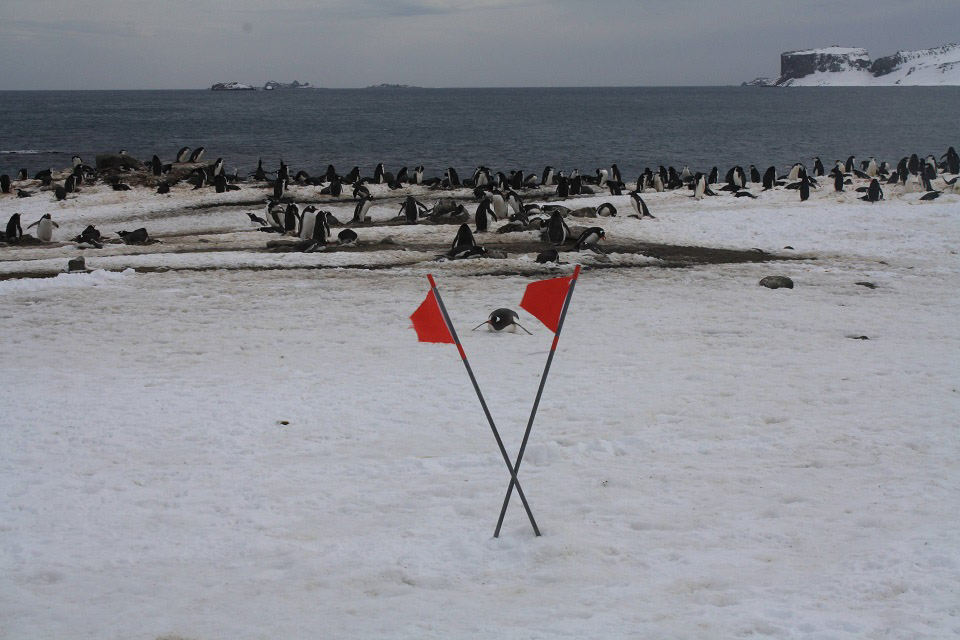
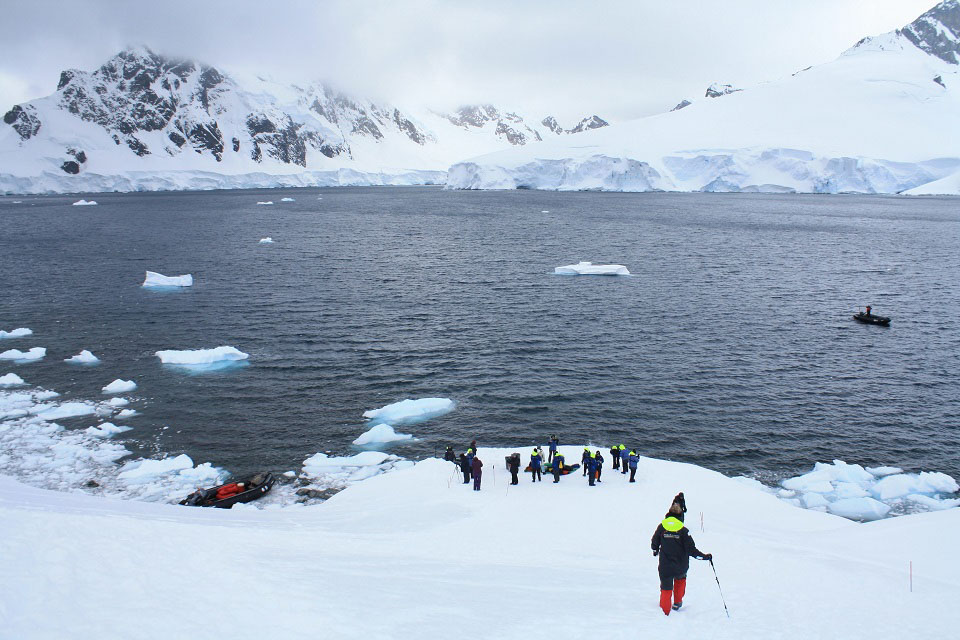
Ari's 21-day expedition with Homeward Bound delved into climate change, leadership initiatives and global awareness projects. (Image courtesy of Ari Comben)
Tell Us About Some Of The Outcomes? What Did You And The Wider Team Achieve?
During the expedition, we forged meaningful connections that extend beyond the confines of this journey, both personally and professionally. Through laughter, tears and exchanging ideas, we established a collaborative atmosphere, serving as the catalyst for the inception of eight key projects. These initiatives aim to make substantial contributions to the combined efforts of present and future leaders addressing climate change. They have the potential to influence policymaking, shape scientific standards and play a transformative role in global leadership.
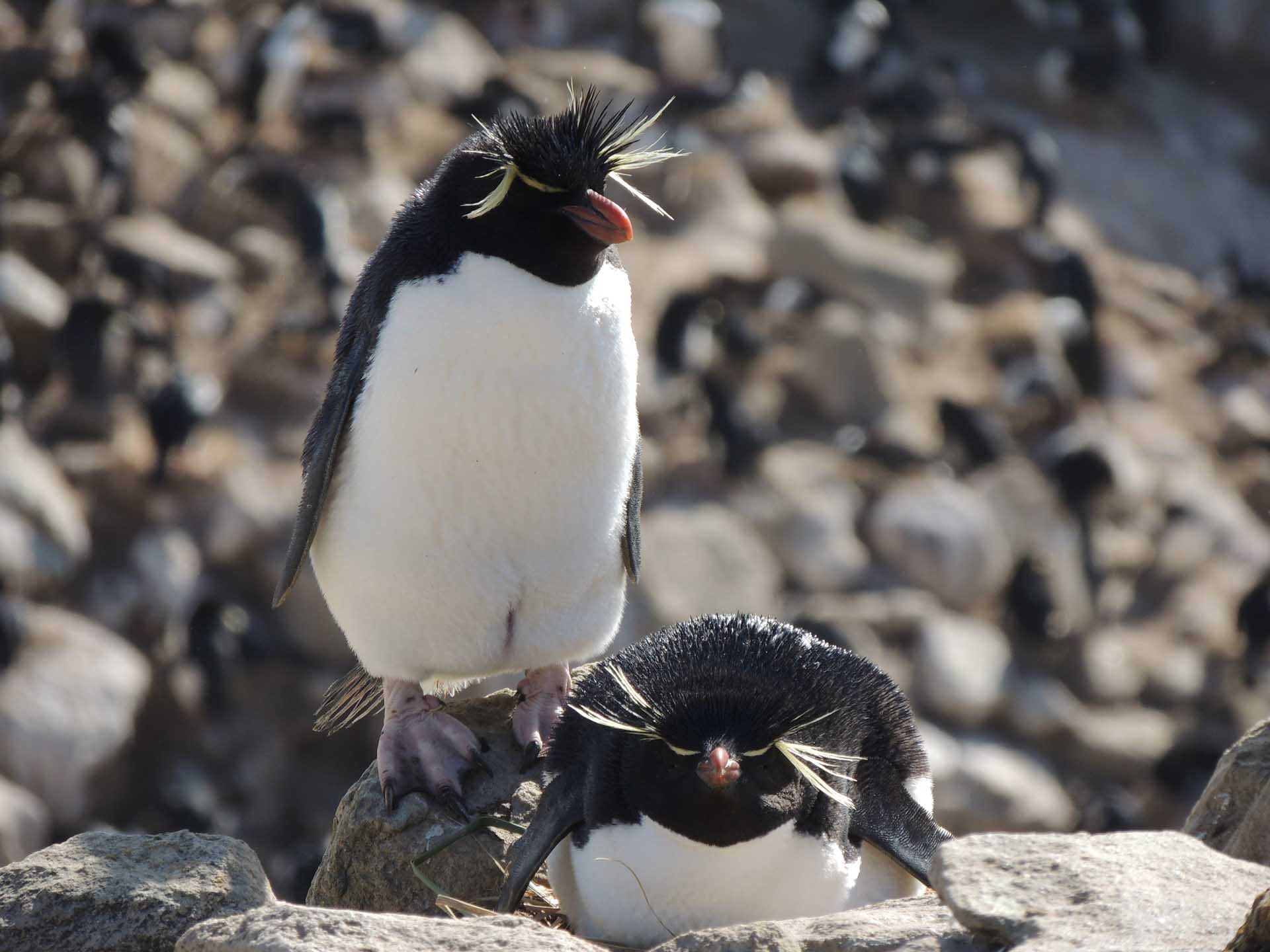
Meeting some of the locals. (Image courtesy of Ari Comben)
Did Anything Unusual/Unexpected Happen?
Yes, during the expedition, some unusual and unexpected events occurred. Firstly, there was a storm that we were supposed to avoid, as it created high wind gusts of up to 60 knots while we were crossing the Southern Ocean. This wind persisted for an unusually extended period, blowing from an uncommon direction, causing a swell of up to 8 metres and leading to the closure of outside areas of the ship. Even our highly experienced captain and expedition leaders remarked that it was something they had never witnessed before - a phrase that was sadly uttered more times than I would have liked. For instance, the number of icebergs seen in the ocean was unusual for that time of the year, and in some cases, the melting of ice shelves between islands led to the creation of two new islands.
Another particularly special and unexpected moment happened while filming a video to advocate for the ratification of the high seas treaty by country leaders. Just as we finished our message, a whale breached twice behind us. We were all in awe as the timing could not have been more perfect.
What Were The Biggest Challenges You Faced On The Adventure? Mental? Physical?
Being in close quarters with that many other women and non-binary individuals over 21 days, facing deep personal and collective reflections, proved to be a challenging experience. The limited downtime and remoteness of the location made it more of an emotional journey than a physical one. The contrast was striking, being in a place of astounding beauty that made you feel small in comparison, yet we could see the massive footprint humanity leaves on the world, reaching even these pristine environments. There were numerous icebergs and ice bits floating away, creating a breathtaking scenery with incredible shapes, arches and varying ice colours. It felt like witnessing one of the grand wonders of the world, a stark contradiction to the awareness that we were observing the gradual melting of the ice shelf right before our eyes.
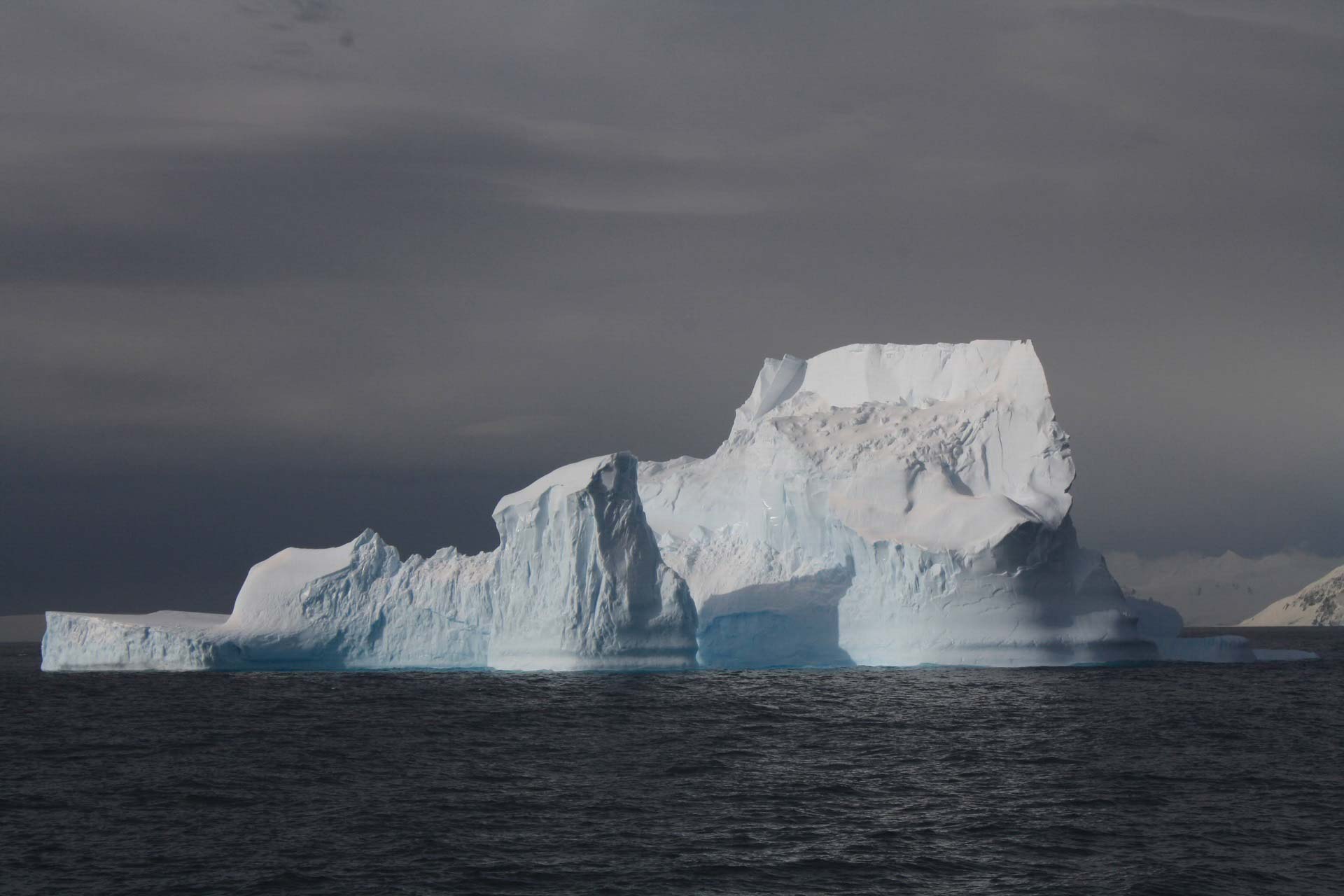
Iceberg. (Image courtesy of Ari Comben)
What Was The Best Thing Of The Trip?
We encountered six different species of penguins, albatrosses, whales and adorable elephant seal pups. Witnessing a few sunsets and moonrises, we marvelled at incredible ice formations. I challenged my limits by taking a polar plunge in water measuring 0.6°C. Beyond Antarctica's breathtaking landscape and charismatic creatures, the true highlights were the people I shared this journey with. Each person brought a unique and inspiring story. Knowing that these individuals are our current and emerging leaders brings me comfort and hope. The bond we created in Antarctica revealed the strength of connections, both to the place and among individuals.
Do you have a background in adventure? What previous achievements/trips have you done?
While I wouldn't call myself a typical adventurer, I do have a deep curiosity to explore our world, whether in nature or immersed in diverse cultures. The outdoors feels like home. Having visited 39 countries so far, I can confidently say that nothing compares to the awe-inspiring experience of Antarctica.
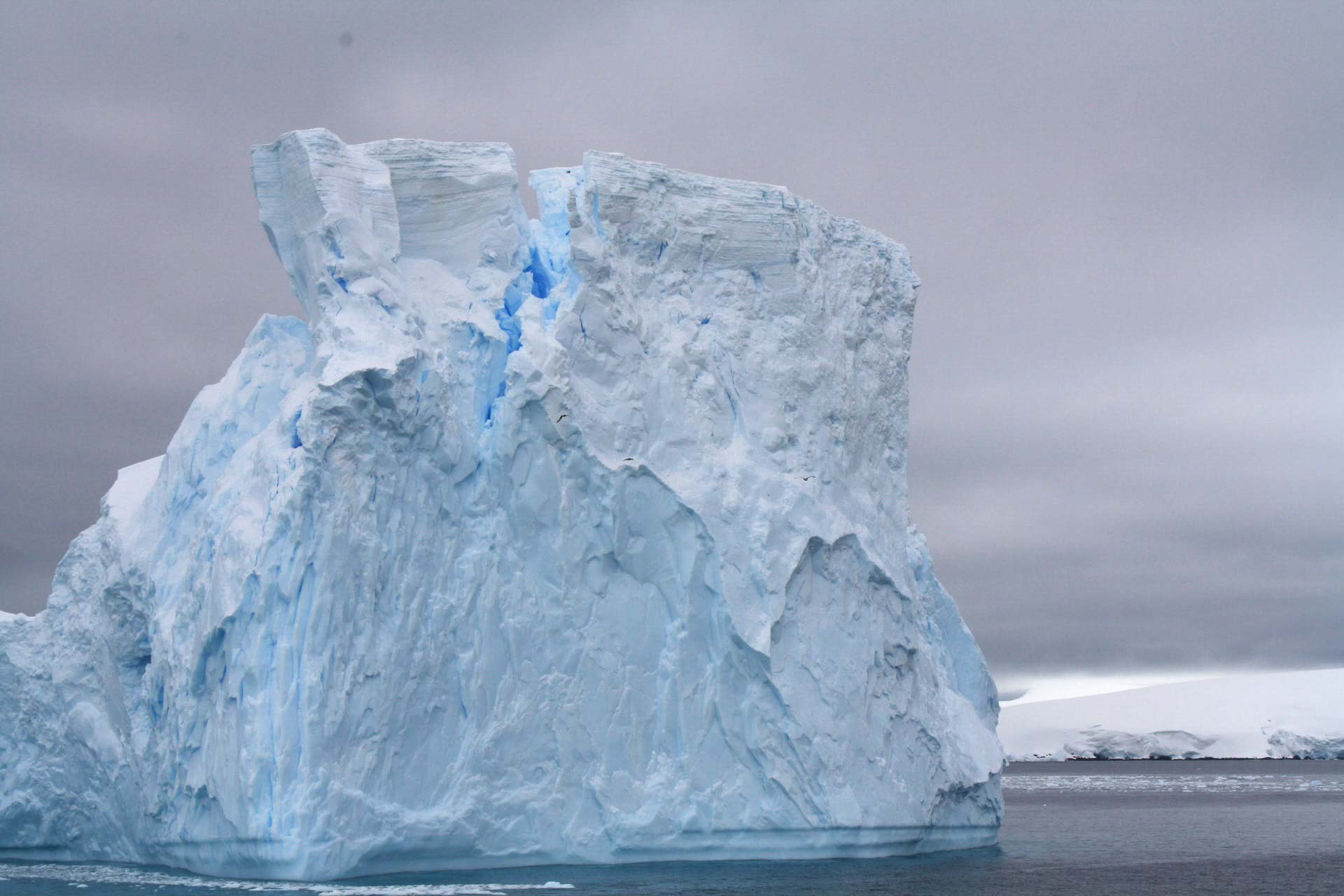
Epic landscapes and scenes abound in every direction in this region. (Image courtesy of Ari Comben)
What preparation had you undertaken?
I participated in six months of fortnightly sessions, each lasting approximately 2.5 hours, leading up to the departure. During these online sessions, we discussed topics such as strategic thinking, visibility and communication, climate change and the development of collective impact projects. The sessions will also continue for another six months upon my return.
Before the trip, there were several logistical tasks to manage, including arranging insurance, booking flights to Argentina, conducting fundraising efforts, acquiring necessary gear, addressing work commitments and adhering to biosecurity measures. Biosecurity is a crucial aspect, it involved thorough checks of my bags and equipment to ensure decontamination and prevent the introduction of alien species to the pristine environment of Antarctica.
This process was not only carried out before departure but was also repeated on our way to the Antarctic Peninsula. Additionally, after each landing, we had to meticulously rinse and disinfect our boots and the bottom of our pants to maintain the highest standards of biosecurity.
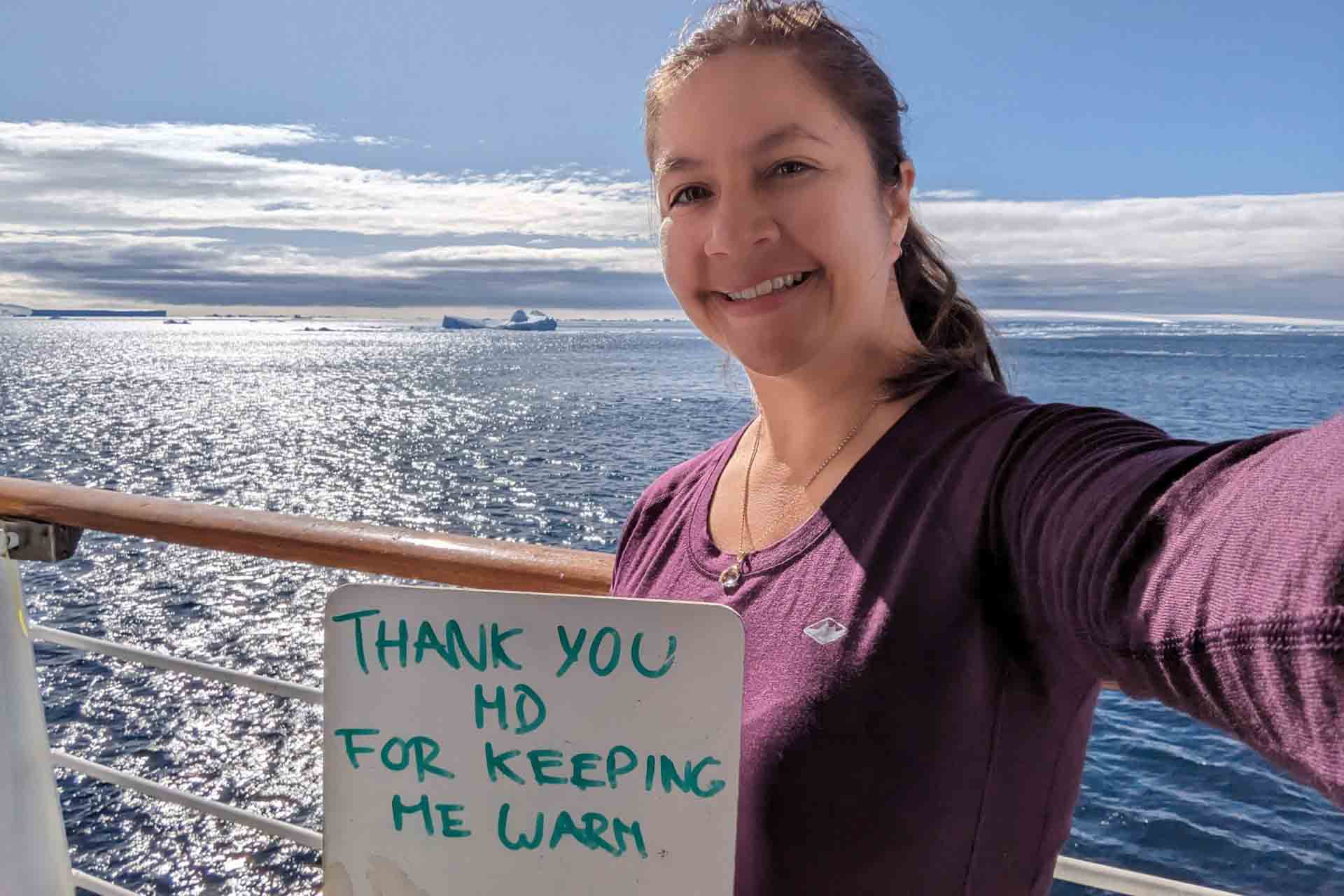
You're welcome, Ari. (Image courtesy of Ari Comben)
Photo Credits
All images supplied by Ari Comben
- Support Ari & Homeward Bound Initiative https://chuffed.org/project/ari-comben-journeytoantarctica-hb8



